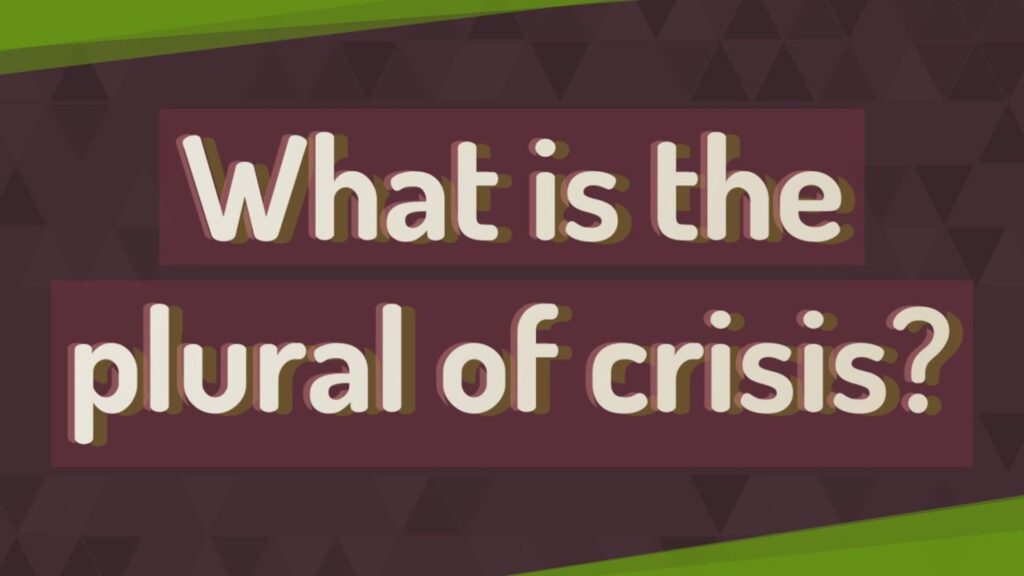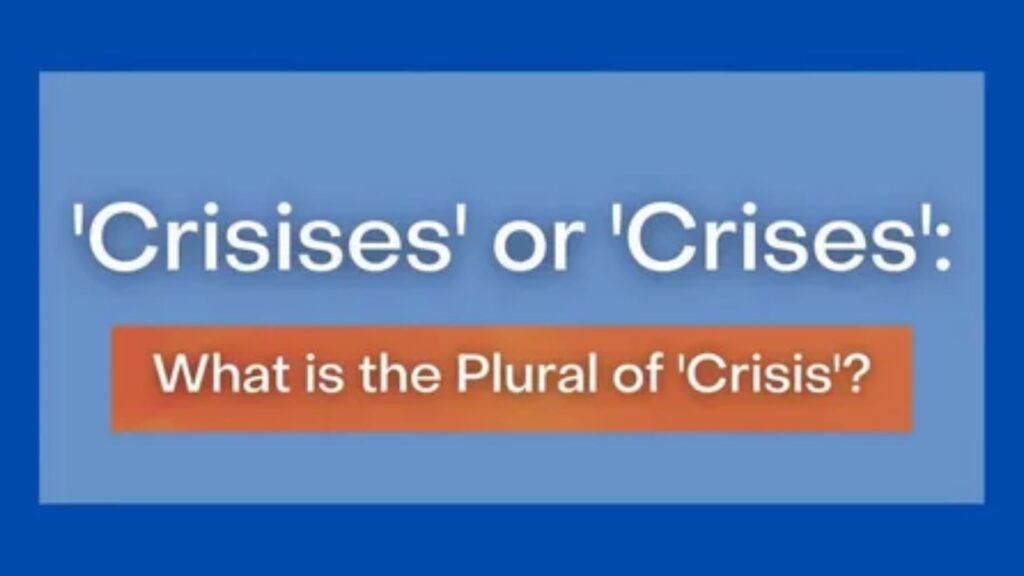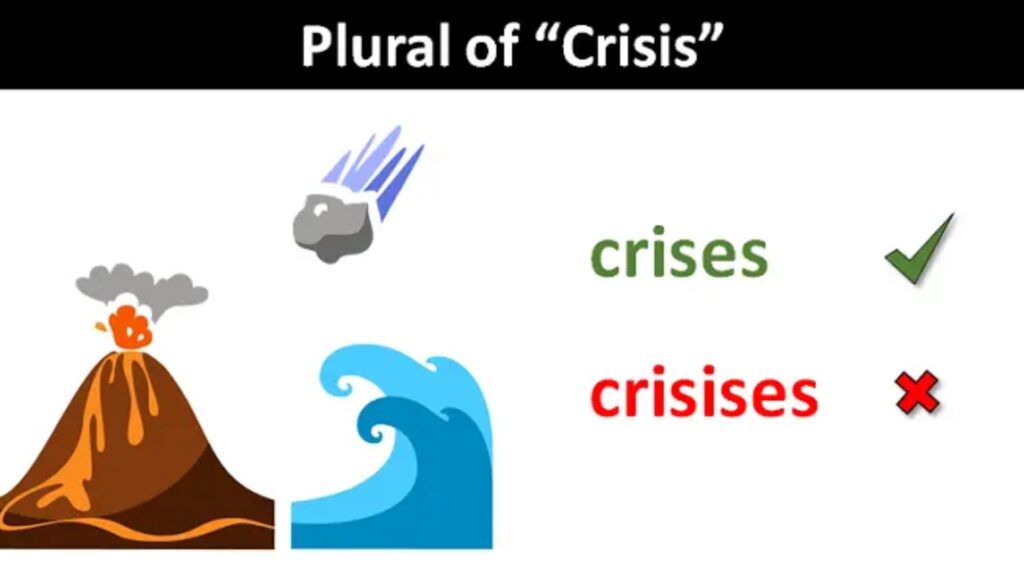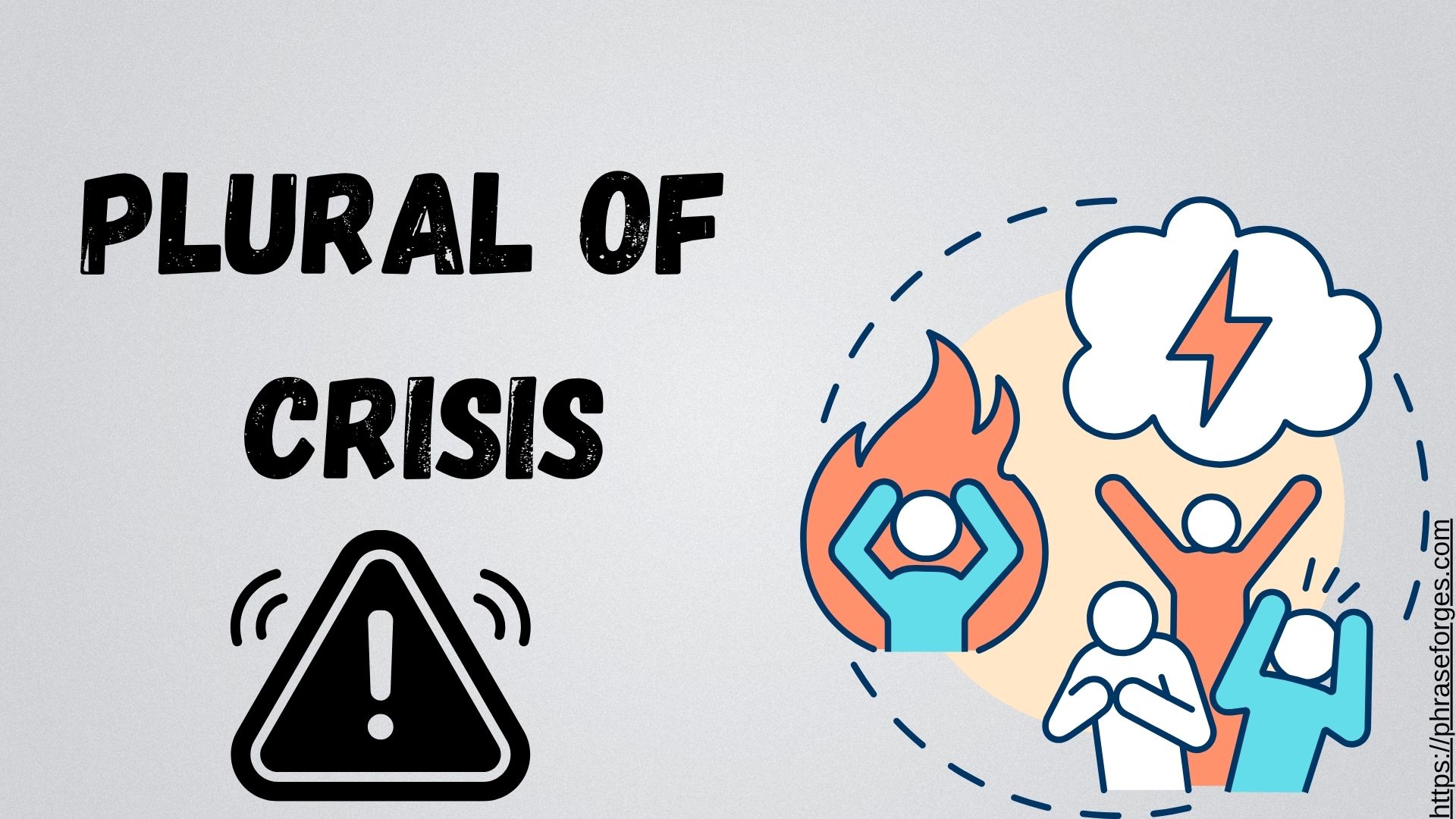When it comes to English grammar, few topics create more confusion than irregular noun plurals and the word crisis is a perfect example. Many wonder: Is it crisis, crisises, or crises? The answer lies in understanding Greek nouns, Latin and Greek word origins, and how English grammar plural rules apply to words ending in -is.
In this guide, we’ll explore the plural of crisis, its etymology, usage rules, pronunciation, and real-life scenario examples to ensure you never misuse it again.
✅ Crisis Plural Form Explained

The correct crisis plural form is crises (pronounced KRY-seez). This follows the suffix change (-is to -es) rule, common with Greek-derived nouns in English.
For example:
- Singular: One financial crisis threatened the company.
- Plural: Multiple economic crises shook the global market.
Here’s the rule:
If a noun comes from Greek and ends in -is, its plural typically changes the -is to -es.
✍️ Common Mistake: “Crisises”
Many learners mistakenly write crisises. However, this is incorrect because English doesn’t pluralize Greek nouns with -s + es. Instead, the inner vowel change (i → e) occurs, transforming crisis to crises just like thesis → theses or oasis → oases.
📜 The Etymology of Crisis
The word crisis comes from the Greek word “krisis”, meaning “decision” or “turning point in a disease.” Over time, it entered Latin as crisis and was later adopted into English during the 15th century.
This is why we see Latinized borrowing of Greek words with similar plural patterns:
- Diagnosis → Diagnoses
- Thesis → Theses
- Synopsis → Synopses
- Oasis → Oases
🔑 Singular vs. Plural Usage in Context

Here’s how crisis (singular) and crises (plural) are used in sentences:
- Singular: “The energy crisis in 1973 reshaped global oil policies.”
- Plural: “The 20th century saw several energy crises that changed world politics.”
📧 Scenario Examples: Crisis vs. Crises in Writing
To truly grasp the difference, let’s see how plural crisis word forms work in professional contexts.
1️⃣ Email Example: Corporate Communication (Singular Use)
Subject: Response to the Ongoing Financial Crisis
Hi Rachel,
As discussed, we need an immediate action plan to address the current financial crisis impacting our quarterly revenue. Please prepare a risk assessment by Friday.
Regards,
James Parker
CFO, GlobalTech Inc.
Here, crisis is singular because it refers to one specific event.
2️⃣ Email Example: Policy Report (Plural Use)
Subject: Addressing Multiple Global Crises
Dear Dr. Nguyen,
The recent economic crises in Asia and Europe require a coordinated response. Our task force will meet Monday to draft a unified aid strategy.
Best regards,
Laura Mitchell
Director, International Relations Division
This uses crises plural because it addresses more than one event simultaneously.
3️⃣ Family or Personal Context Example
“After dealing with a family crisis last year, Maria found herself handling two more unexpected personal crises this summer.”
This example blends singular vs plural noun forms in a real-life context.
🔍 Related Greek-Derived Plural Nouns
Here’s a quick-reference table comparing crisis plural form with similar Greek nouns:
| Singular | Plural | Pronunciation (Plural) |
|---|---|---|
| crisis | crises | KRY-seez |
| thesis | theses | THEE-seez |
| oasis | oases | OH-uh-seez |
| synopsis | synopses | SIN-uhp-seez |
| diagnosis | diagnoses | DYE-uh-no-seez |
🗣 How to Pronounce Crisis vs. Crises
- Crisis: /ˈkraɪ.sɪs/ (KRY-sis)
- Crises: /ˈkraɪ.siːz/ (KRY-seez)
Notice how the vowel sound changes when pluralized.
🌟 Grammar Tips for Irregular Plurals
When dealing with irregular noun plurals in English, keep these tips in mind:
- ✅ If a noun ends in -is (from Greek), change it to -es (crisis → crises).
- ✅ Remember similar transformations (thesis → theses).
- ❌ Don’t add “-s” or “-es” to form crisises.
- ✅ Check pronunciation because it often shifts (-sis → -seez).
💡 Everyday Usage Scenarios
- Business: “Three market crises disrupted global trade last year.”
- Healthcare: “Doctors studied past medical crises to prepare for future outbreaks.”
- Media: “News outlets covered multiple political crises across the region.”
🔗 Why This Rule Matters

Correctly using plural of crisis signals mastery of English grammar plural rules and professional credibility, especially in academic, business, and formal writing contexts. Misusing it (like crisises) can make your writing appear sloppy or unpolished.
✨ Final Takeaway
The plural of crisis is always crises, following the Greek noun suffix change (-is to -es) rule. Whether you’re writing about an energy crisis, a family crisis, or multiple economic crises, remembering this pattern will keep your English precise and professional.

